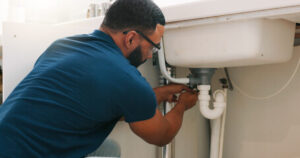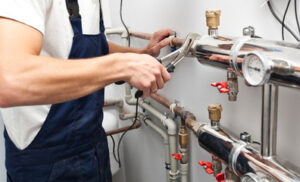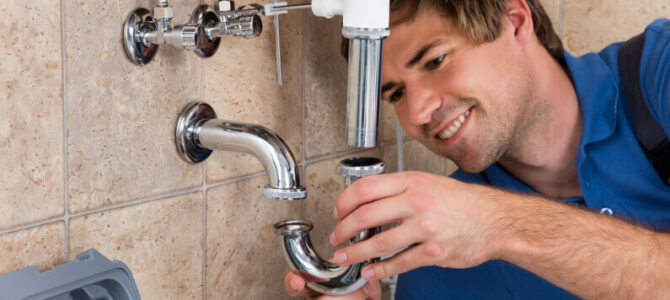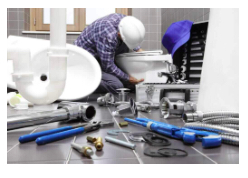Whether it’s a burst pipe or a flooding problem, emergency plumbing situations must be handled immediately. This prevents further damage to the home and saves homeowners money on expensive repair bills.
Leaky pipes are a major problem that can cause significant damage in a short amount of time. If you notice a water leak in your home, it is essential to call an emergency plumber as soon as possible to minimize the damage.
There are several things that can cause a pipe to leak, including age, wear and tear, and even tree roots. If you have old pipes, it is especially important to get them checked out as soon as you notice a leak. Newer homes are also susceptible to leaky pipes if the plumbing system was not installed properly.
A pipe leak can lead to flooding, water damage, and even mold in your home if not addressed immediately. Emergency plumbers can repair or replace your pipes to stop the leak and prevent future problems.
Another common cause of a plumbing emergency is a burst pipe. This is typically a result of freezing temperatures or over-extension of the pipe. It is important to shut off your water supply as soon as you notice a burst pipe so that the water can be stopped from flowing into your home. Emergency plumbers will be able to repair or replace your pipes quickly to prevent further damage.
A third common reason to call an emergency plumber is if there is a gas leak in your home. This is a very dangerous issue that needs to be fixed as soon as possible. If you suspect a gas leak, it is important to turn off your gas supply at the main valve before calling a plumber. Once the plumber arrives, they can determine if the leak is caused by a simple problem like a broken seal or a more serious issue like a pipe rupture.
While there are a few different types of plumbing emergencies, most of them involve turning off your water supply or stopping the flow of water in your home. It is important to know where your water valve is located so that you can shut it off in an emergency situation. It is also helpful to have a bucket or bin nearby to catch any water that may come from the damaged fixture.
Clogged Drains
One of the most common reasons for people to call an emergency plumber is to deal with clogged drains. This issue can cause serious problems if left unattended, and it often occurs due to food waste, paper products and other debris that is flushed down the drains. A professional can use a variety of tools to remove blockages and restore proper flow.
Before calling an emergency plumber, try a few things on your own to clear the drain. The most important thing is to remove any standing water. This will prevent further damage and help the drain to drain more quickly once it is cleared. You can also pour hot water down the drain to loosen up any debris. If you have a power auger, plug it in and position it over the drain. Turn on the motor and feed a few feet of cable down the pipe. Most models have a foot pedal switch, so you can leave your hands free to guide the cable down the pipe.
Some clogs are more severe than others, and it is best to contact an emergency plumber when you notice any of the following signs:
Gurgling Sound
A gurgling sound while draining can indicate that there is a partial blockage in your pipe system. Vents in your home’s DWV system allow air to pass through the pipes while water is flowing, but a blockage will stop this flow and cause pressure issues.
Water That Is Discolored
If your home’s water is brown or yellow, this indicates that it is contaminated with sewage or other waste. It is best to contact an emergency plumber right away so that they can figure out what is causing the problem and how to fix it before any further damage is caused.
When choosing an emergency plumber, it is important to find out as much as you can about their qualifications and experience. You can do this by asking friends, family members and neighbors for recommendations and checking online reviews. It is also helpful to compare prices from multiple plumbers before hiring someone. Many emergency plumbers charge a service fee just to come out to your home, even for minor repairs, so make sure you ask about this before making a decision.
Water Heater Breakdown
If your water heater breaks down, it can lead to flooding and water damage throughout your home. It can also cause a lot of stress for you and your family. If this happens, call an emergency plumber right away. They will be able to diagnose the problem quickly and give you advice on what steps to take while waiting for them to arrive.
Another issue that constitutes a plumbing emergency is when your toilet is backed up and you can’t flush any more. This can be dangerous for your family and could be a sign of bigger problems with your sewer line. Calling an emergency plumber will help you avoid serious water damage and potential health issues.
You should consider turning off your water supply before you call an emergency plumber. This will prevent further damage and make it easier for the plumber to find the source of the problem. Once you’ve shut off your water, open all of your drains and spigots to remove any remaining water. Also, make sure to check for any signs of water damage such as warped floors or peeling paint. This will help the plumber determine what caused the emergency and how severe it is.
When deciding whether to hire an emergency plumber, it’s important to know what defines a plumbing emergency. Some common issues that need immediate attention include leaking pipes, broken water heaters, and clogged drains. It’s also important to choose a reliable plumber who can fix your problem quickly and effectively.
Before hiring an emergency plumber, you should always ask for references and look at their online reviews. This will help you get a better idea of their experience and quality of work. You should also ask about their rates and how long they have been in business.
While it may seem like a hassle to do this, it will save you time and money in the long run. In an emergency situation, you don’t have the luxury of time to compare prices and services, so it’s important to do your research ahead of time. This will ensure you find a trustworthy emergency plumber who will provide quality service at a fair price.
Sewage Backup
Sewage backup is a nightmare scenario for any homeowner, as raw sewage is dangerous and carries harmful bacteria. It can also cause extensive water damage to your home’s walls, floors, and furniture. To minimize the damage, you need to act quickly to find the source of the backup and have it fixed as soon as possible.
A sewage backup typically occurs because of a blockage in your drain or main sewer line. This can be caused by a combination of factors, including toilet paper, hair, soap scum, grease, and other solid waste. If the blockage is too severe, it may result in sewage backing up into your home’s drains, toilets, and other fixtures.
When this happens, it is important to turn off your home’s water supply immediately. You can do this by locating the valve on the wall behind your toilet and turning it clockwise. This will stop the flow of water and help prevent further damage.
Next, you should evacuate the affected area and move your family to another part of the house until a professional can inspect and clean it. Then, you should use fans and portable dehumidifiers to dry out the area. Finally, you should hire a professional restoration company to repair any damage and sanitize the space.
Sometimes, a sewage backup can occur because of issues with the city’s or county’s sewer line. This can be due to heavy rains or tree roots that have grown near the line. If the roots get into the line, they can cause it to break and lead to a backup.
If you think that your sewer line is backed up, contact your local government to see if they offer emergency services. They can send an inspector to determine if the problem is on your property or in the city’s line. If it is on the city’s line, they may be able to reimburse you for the plumber’s service. Otherwise, you will need to call an emergency plumber to fix the issue.







